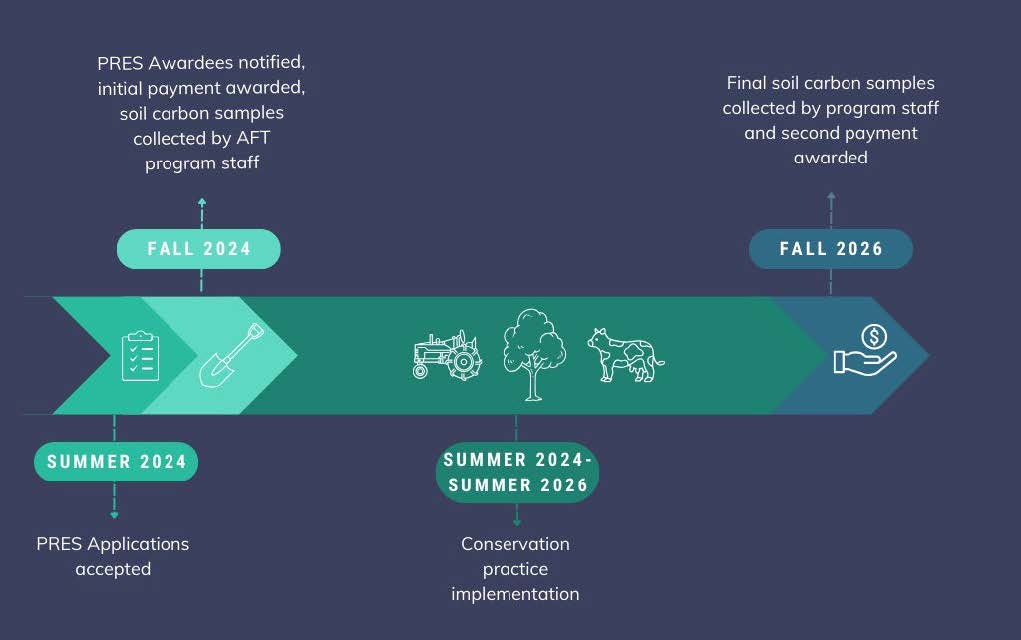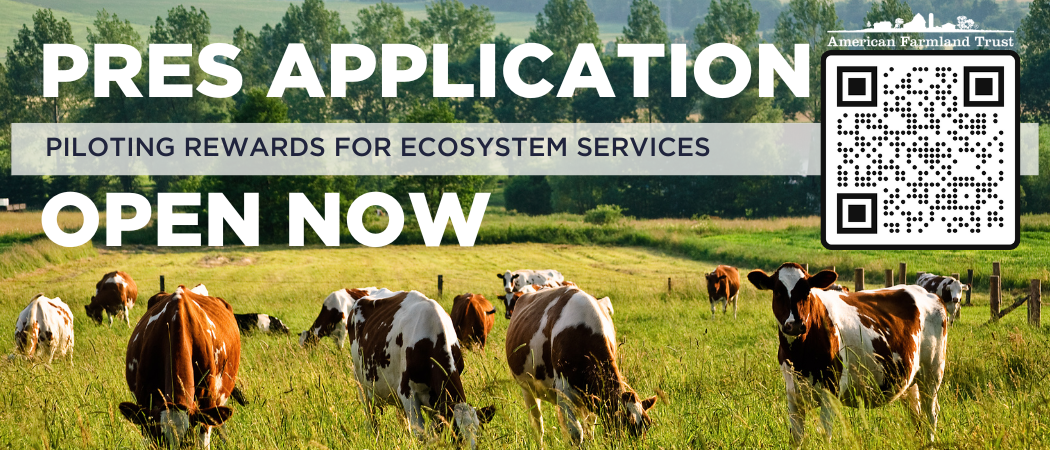About
This program provides farmers with an estimate of the emissions reduction impact of conservation and agroforestry practices they are implementing. PRES then rewards participants with two kinds of payments, a participation payment and an ecosystem services performance payment based on the amount of emissions reduction impact of their practices. Using models such as COMET-planner, program staff will help applicants estimate the Carbon Dioxide Equivalents sequestered by the implementation of their proposed conservation practices. If applicants are selected for funding, baseline soil carbon measurements will be collected by program staff, and these measurements will be repeated after conservation practice implementation. These soil measurements are for verification and research purposes only at this time.
PRES is not a carbon offset or carbon credit program. PRES rewards farmers for environmental stewardship and reports information about the total emissions mitigation impact of new practices back to each farm. PRES is trialing innovative approaches to how farmers are compensated for conservation. The program seeks to share information, learn, and evolve over time.
This program is administered by American Farmland Trust’s Western New England Regenerative Agriculture RCPP Project in partnership with the USDA Natural Resources Conservation Service (NRCS) Regional Conservation Partnership Program (RCPP).
Five Important Things We Want You to Know About This Program
- It’s a pilot program. We want to learn about your experience with this program and are eager for your ideas on how to improve it if it continues in future years.
- The emissions estimates are based on a model. The model we are using this year is called COMET-Planner. It’s simple, easy to use, and available on a public website. It may not be perfectly accurate, but it is science-based and being improved all the time.
- We want to measure changes in your soil carbon levels over time. This will not impact the payment you receive, but it will help us learn.
- This is not a carbon market program. It is not associated with any kind of offset buying or trading. Our goal is to reward the contributions that farmers make towards emissions reductions – that’s it!
- There are two types of payments. Everyone who enrolls gets a participation payment. We also calculate an ecosystem services performance payment based on the estimated emissions reduction impact your practices have. The larger your impact on emissions, the higher your ecosystem services performance payment will be.
Timeline
Applications for the first round of the PRES Program will be accepted from May 20, 2024 – September 6, 2024. Applications will be reviewed monthly. If selected, applicants will be notified. Upon signing an award agreement, applicants will be paid a one-time enrollment incentive of $1,000, as well as a payment for half of the modeled carbon to be sequestered by the proposed project at $40/ton/acre. Program staff will take initial soil carbon measurements in 2024. Conservation practice implementation is expected to begin by the spring of 2025. Final soil carbon measurements will be conducted between June and September of 2026, and the remaining payment for the modeled carbon sequestration will be paid in October of 2026, contingent on conservation practice implementation.

Eligibility
Eligible participants must be livestock producers implementing agroforestry practices for the first time on the land unit after their project has been selected for funding. Projects this round must include the establishment of agroforestry through tree and/or shrub planting. Additional land management changes (such as cover cropping, mulching, reduced tillage/no-till, nutrient management, etc.) can be included in your application.
The proposed project must take place in one or more of the following counties:
- Connecticut: Fairfield; Hartford; Litchfield; Middlesex; New Haven; New London; Windham; Tolland
- Massachusetts: Hampshire; Hampden; Berkshire; Franklin; Worcester
- New Hampshire: Coos; Grafton; Sullivan; Cheshire
- Vermont: Bennington; Caledonia; Essex; Orange; Windham; Windsor


